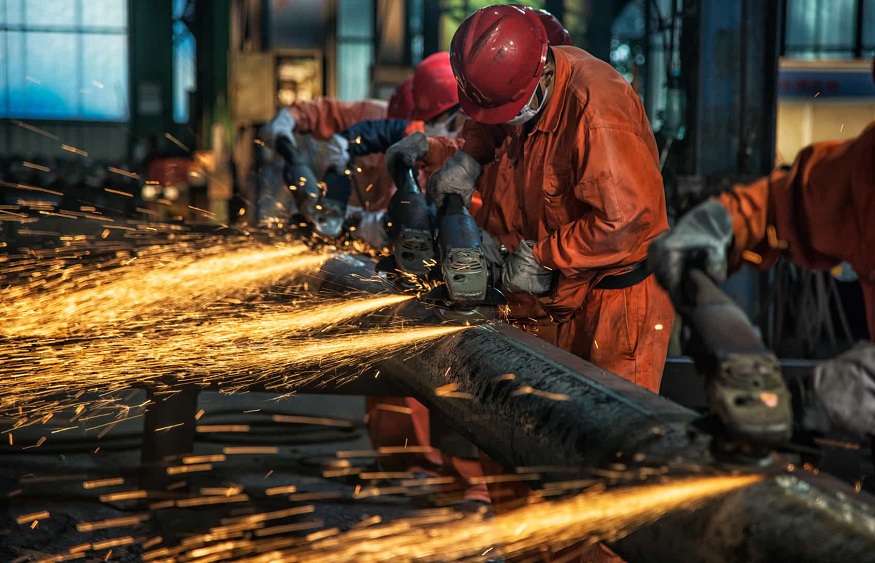As modern technology continues to redefine the way we manufacture and produce goods, Industry 4.0 emerges as a pivotal force. It harnesses the power of digital technologies, automation, and data analytics to reshape traditional manufacturing processes. While commonly associated with sectors like automotive and electronics, the impact of Industry 4.0 extends even to fields as fundamental as metal finishing, presenting a revolution in the way we understand and approach this critical aspect of manufacturing.
The Influence of Industry 4.0 on Metal Finishing
Traditionally, metal finishing has been a labor-intensive process. It involves various techniques, from plating and anodizing to painting and powder coating, all aimed at enhancing the surface properties of metal components. While these processes have been refined over the years, the introduction of Industry 4.0 technologies is taking metal finishing to new heights.
Automation in Metal Finishing
Automation is a key component of Industry 4.0, and it’s playing a vital role in modernizing metal finishing. These automated systems are now handling tasks that were once performed manually, leading to increased efficiency and reduced labor costs. For example, robotic arms can precisely coat or plate components, ensuring uniformity and consistency in the finishing process. This not only improves the quality of the finished product but also reduces the risk of human error.
IoT Sensors and Data Analytics
Another aspect of Industry 4.0 in metal finishing is the integration of IoT (Internet of Things) sensors and data analytics. IoT sensors are deployed throughout the manufacturing line to collect real-time data on various parameters such as temperature, humidity, and chemical concentrations. This data is then analyzed using advanced algorithms to optimize the finishing process.
Efficiency and Waste Reduction
The real-time data provided by IoT sensors allows for proactive maintenance and process adjustments. For example, if a sensor detects a deviation in temperature or chemical concentration, it can trigger an automatic adjustment to bring the process back to the desired parameters. This not only ensures consistent quality but also reduces the risk of defects and rework, ultimately leading to less waste and cost savings.
Quality Control
In metal finishing, quality control is paramount. Even minor defects or inconsistencies can lead to product failures or customer dissatisfaction. With Industry 4.0 technologies, quality control has become more rigorous and reliable. IoT sensors can detect deviations from quality standards in real time, allowing for immediate corrective actions. This ensures that only products meeting the highest quality standards make it to the market.
The Future of Metal Finishing
As we adapt to Industry 4.0, the influence of automation, IoT sensors, and data analytics on metal finishing will continue to grow. These technologies not only enhance efficiency and quality but also contribute to a safer working environment for employees. With reduced manual labor in hazardous processes, the risk of workplace accidents is significantly diminished.
Industry 4.0 for a Brighter Future in Metal Finishing
Industry 4.0 is reshaping the metal finishing industry, making it more efficient, cost-effective, and quality-oriented. Automation and data analytics are driving these changes, ultimately benefiting manufacturers and end-users. As the industry embraces these transformative technologies, we can expect even more innovations and improvements in the field, led by expert metal finishers with robust metal finishing services.

